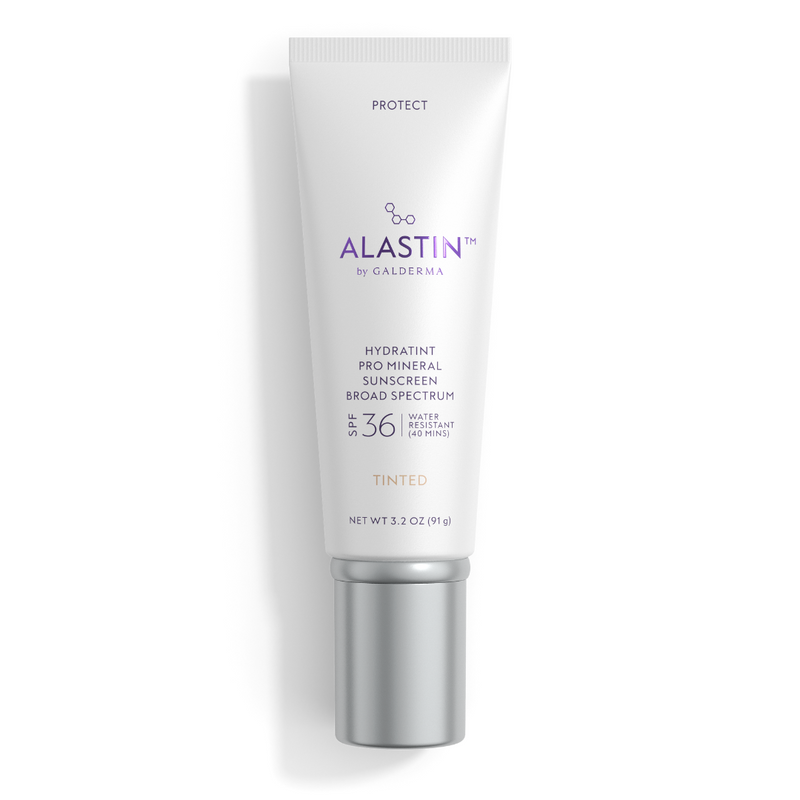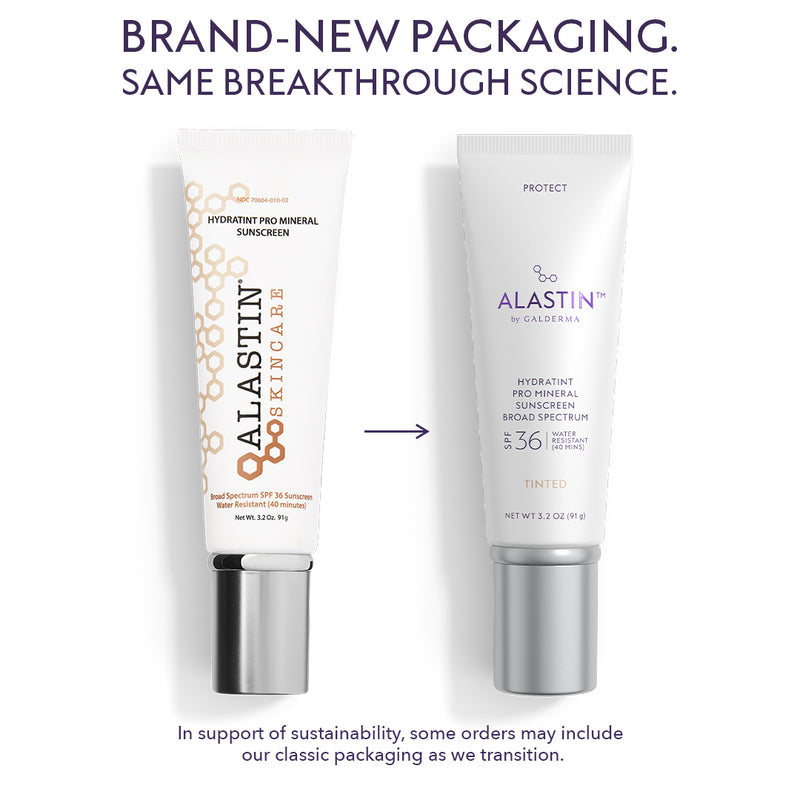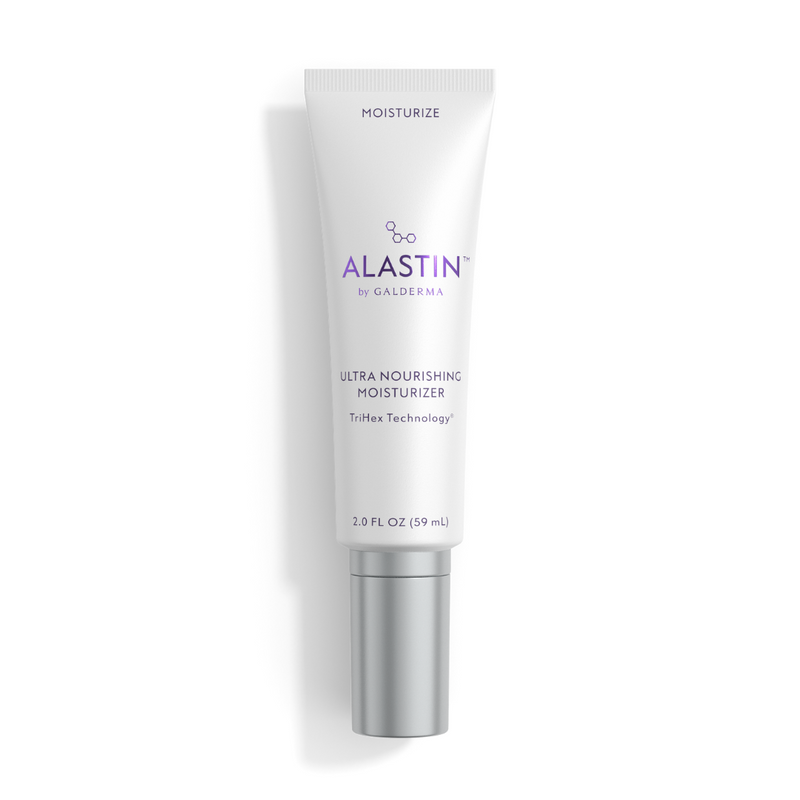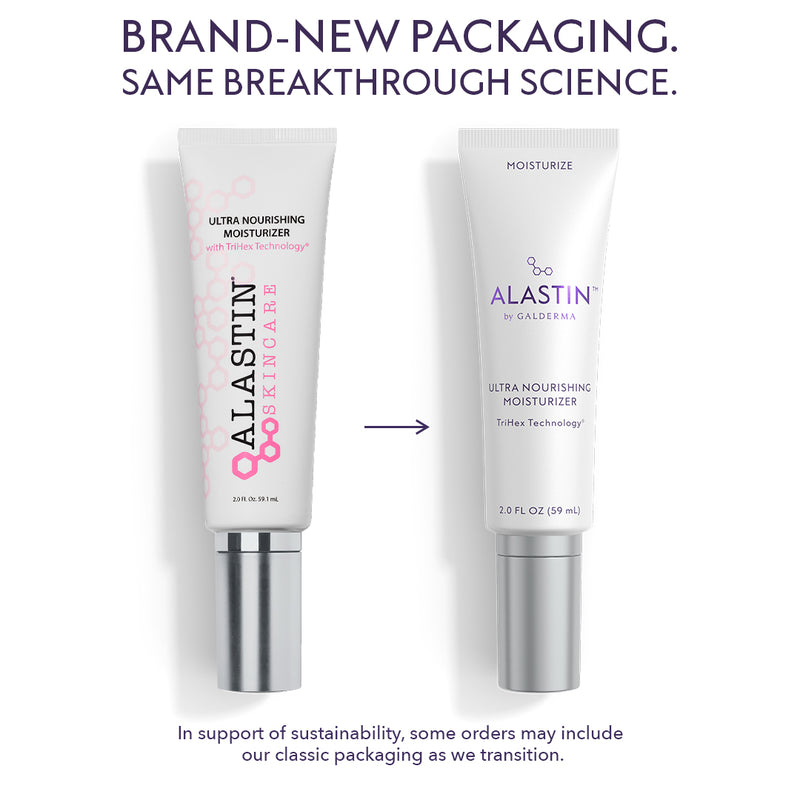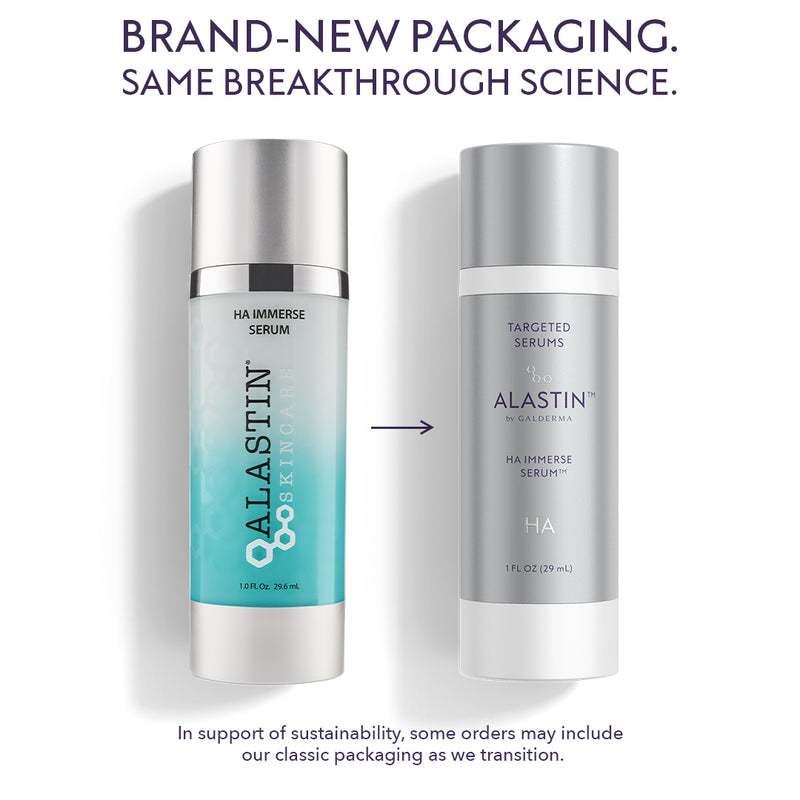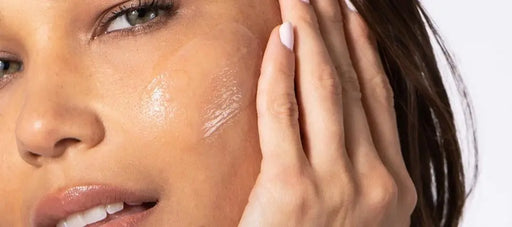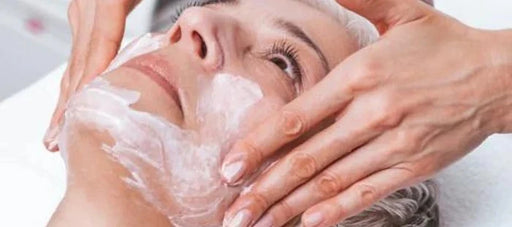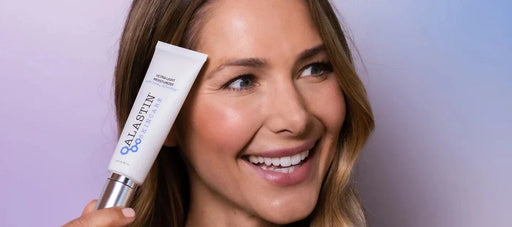You have no items in your bag
5 Tips on How to Hydrate Skin
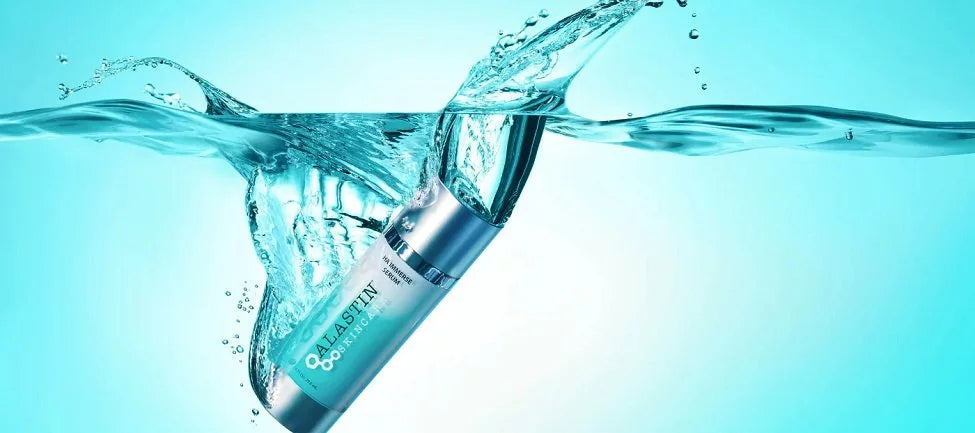
Dry skin happens to everyone. From the dehydrating effects of cold winter days to moisture-stripping days under the summer sun, dry skin is a year-round concern for many. But dry skin can be caused by internal factors as well, specifically the aging process. The skin loses its ability to retain moisture as we age.
Introducing a practice of moisturization in your day-to-day life can help prevent signs of aging and help you feel comfortable and glowing in the skin you’re in. From science-backed ingredients to lifestyle tweaks, here are five tips on how to keep skin hydrated.
#1 Identify Your Dry Skin Cause
Most people notice or feel dry skin when it develops. However, it can be difficult to pinpoint the exact root cause. The faster you do, the faster you can hydrate your skin effectively. Both genetic and environmental conditions can trigger dry skin, including:
- Weather – During the colder months, humidity levels significantly lower. The dryness of the air can take a toll on your skin’s moisture. And artificial temperature controllers—AC units, heating systems—can create dry indoor conditions, too.
- Chemical use – Certain detergents, soaps, and fabrics contain skin-drying chemicals. In particular, products with fragrances can irritate and exacerbate dry skin.
- Heat – Both air and water heat sources can sap skin hydration. A hot shower or bath may seem hydrating in the moment, but the strong heat will provoke skin dryness.
- A lack of proper skincare – Without effective moisturizers or regimens, dry skin will stay parched. We’ll dive more into building a proper hydration skincare routine.
- Medical conditions – Just like some people generally have oily skin, dry and dehydrated skin might just be your skin’s natural state thanks to genetics. Additional skin conditions like eczema and psoriasis can also increase flakiness, irritation, and other dry skin symptoms.1
- Aging – As we age, our skin’s ability to stay hydrated and moisturize itself lessens. Over time, the skin produces less oil or sebum. While this does reduce lesions or acne, it also means less suppleness and overall dryer skin. Additionally, our skin loses its ability to maintain hydration over time.
#2 Build a Hydrating Skin Routine
Every skin type needs a thorough, customized care routine. For dry skin, that involves taking extra steps to lock in moisture throughout the day.
To ensure your skin is getting moisturization 24/7, a proper daily skincare routine requires the following steps:
- Cleanse
- Moisturize
- Protect
Below, we’ll dissect how each category best supports every step of a hydrating skin routine.
Cleanse
When it comes to cleansing dry skin, the gentler the better. To rid skin of dirt and harmful bacteria, a cleanser is necessary—studies show that hot water alone won’t keep you clean.2 However, over-washing or harsh formulas can wreck the skin’s barrier and strip away natural moisture.3
Try our Gentle Cleanser, which Dr. Lesley Rabach, facial plastic surgeon and co-founder of LM Medical said in The Oprah Magazine, "thoroughly removes dirt and makeup, plus is gentle enough for post-procedure or after surgery."

Moisturize
All skin types (even oily or acne-prone) need a moisturizer. But for those with dry skin, you’ll need to intensify your routine to reap the hydrating benefits.
For glowing skin, adopt these moisturizing tips on how to hydrate your face and body:
- Timing – After showering or washing your face, immediately apply moisturizer, preferably when skin is still damp. That way, you can lock in hydration and prevent that dry, tight feeling in your skin.
- Formula – We know to steer clear of fragrances or alcohols. But the best moisturizers also support your skin’s elastin and collagen, like our Ultra Nourishing Moisturizer. The TriHex Technology® encourages skin protein cell turnover, while oat kernel extract and triglycerides add all-day, oil-free moisture—perfect for daily use.
Protect
When outside, everything from pollution to humidity to sunlight “touches” your skin. Even indoors, the dust levels and air quality impact your skin’s health. Fortifying the skin barrier against environmental factors not only maintains moisture but also prevents future damage.
A few tips to preserve skin hydration include:
- Use sunscreen – Sunlight is a top skin ager, leading to premature dryness.4 Add our SilkSHIELD® All Mineral Sunscreen SPF 30 to your morning routine to protect against sun damage). Don’t skip this step due to cloudy weather— up to 80% of sun rays still penetrate clouds.5
- Nourish sensitive areas – Certain skin area’s—under-eyes, knees, elbows—suffer extra dryness due to thinner skin or exposure. Our targeted eye treatment will help guard these delicate spots.
#3 Pick Moisturizing Ingredients
Everyone’s skin is unique. But in a flooded skincare market with countless options, finding the best fit for your skin is difficult. To pick truly hydrating ingredients in products, let science and quality lead the way.
Let’s breakdown which skincare ingredients to seek or avoid for hydrating skin:
- Hyaluronic Acid (HA) – A gentle exfoliant and nourisher, hyaluronic acid is known for its humectant properties, meaning it draws water to itself, trapping in moisture. Our human bodies naturally produce HA, so products with it tend to benefit most skin types. Use products like HA IMMERSE Serum, which San Francisco dermatologist Amelia Hausauer, MD, says, "not only hydrates with long chain hyaluronic acid (the kind that is naturally found in skin) but also encourages the production of your own HA for both immediate and long-term effects."
- Silver mushroom complex – To amplify HA’s power, pair it with silver mushroom complex. This Tremella mushroom extract not only promotes your body’s natural HA production but also draws in 400x more moisture than HA. Not to mention it boosts vital collagen production.6 To reap all silver mushroom benefits for skin, add a Tremella-based product to your routine like our Restorative Skin Complex.
- Glycerin – Another humectant, glycerin hydrates skin by attracting water molecules. It’s also an excellent budget ingredient option for moisturizing your skin.
Keeping an eye out for products full of moisturizing ingredients is a smart way to ensure your skincare routine is always hydrating. But it’s always a good idea to be mindful of the products that can exacerbate dry skin, for example:
- Fragrances or perfumes – A lovely scent may seem harmless at first. But synthetic fragrances often irritate and overdry skin and even natural fragrances from essential oils can exacerbate skin issues. Stick with fragrance-free products to keep skin well-hydrated.
- Salicylic acid – While gentler than most ingredients on this list, salicylic acid dries out skin more than it soothes.
- Alcohols – As a skin hydration rule of thumb, avoid ingredients ending in “ol” or “yl.” Common alcohols like SD alcohol 40, isopropyl, and ethanol all have a drying, irritating effect on skin.
#4 Take Advantage of Sleep
Don’t underestimate the power of a good night’s sleep. Sleep offers a chance to deeply hydrate your skin, giving it hours to soak in moisture. Not to mention, studies show that sleep quality and skin health go hand in hand.7
- Overnight mask – For extreme conditions, overnight masks can provide intense relief. Pick masks with deep moisturizers like glycerin, shea butter, and non-comedogenic oils.
- Humidifier – Seven to nine hours of dry air exposure is a recipe for skin dehydration. One study showed that just a 30% air humidity difference can increase fine lines on skin within one day8. Plug in a humidifier to build a skin-friendly overnight environment.
#5 Live a Hydration-Friendly Lifestyle
Hydration, even for skin, comes from the outside and inside.
Your skincare routine may be moisturizing perfection. But if drinking water or eating vegetables isn’t your strong suit, you might need to tweak a few daily habits for peak moisture.
Kick off your inner-beauty journey with these lifestyle tips on how to hydrate skin:
- Reduce hot water use (i.e., long showers or baths)
- Choose detergents free of allergens, fragrances, or irritants
- Stop or reduce smoking
- Eat a nutritious, whole foods diet
- Drink more water
Stay Consistent to Stay Moisturized
For many, skin dryness won’t resolve in one day. The most important factor to any hydrating routine? Consistency. Once you find the habits that nourish your skin, stick with them. Consider incorporating our hydration tips and our science-backed dry skin treatment products into your skincare routine.
Sources:
-
Harvard Health Publishing. Is that dry skin really something more serious? https://www.health.harvard.edu/diseases-and-conditions/is-that-dry-skin-really-something-more-serious
- Mukhopadhyay, Partha. Cleansers and Their Roles in Various Dermatological Disorders. https://www.ncbi.nlm.nih.gov/pmc/articles/PMC3088928/
- Shapiro, Bee. Are You Overwashing Your Face? https://www.nytimes.com/2018/10/09/style/wash-that-face.html
- Rittie, Laure, et al. Natural and Sun-Induced Aging of Human Skin. https://www.ncbi.nlm.nih.gov/pmc/articles/PMC4292080/
- Sklar, Hallie Levine. Six common sun myths, exposed. https://www.cnn.com/2012/07/10/living/guide-to-sun-safety
- Wu, Yuanzheng, et al. Mushroom Cosmetics: The Present and Future. https://www.mdpi.com/2079-9284/3/3/22/pdf
-
Oyetakin-White, P., et al. Does poor sleep quality affect skin ageing? https://pubmed.ncbi.nlm.nih.gov/25266053/
- Tsukahara, Kazue, et al. Effect of room humidity on the formation of fine wrinkles in the facial skin of Japanese. https://pubmed.ncbi.nlm.nih.gov/17374060/
-
Ali, Saba M., et al. Skin pH: from basic science to basic skin care. https://pubmed.ncbi.nlm.nih.gov/23322028/
-
Fluhr, J. W., et al. Glycerol and the skin: holistic approach to its origin and functions. https://pubmed.ncbi.nlm.nih.gov/18510666/
-
Lesback, Lexy. Uncovered: The Truth About Fragranced Beauty Products. https://www.roseinc.com/blogs/content/uncovered-the-truth-about-fragranced-beauty-products
-
Morrill, Hannah. Do You Really Need to Worry About Your pH?https://www.allure.com/story/everything-you-need-to-know-about-ph-balance
-
Panico, A., et al. Skin safety and health prevention: an overview of chemicals in cosmetic products. https://www.ncbi.nlm.nih.gov/pmc/articles/PMC6477564/
- Shunatona, Brooke. Is Aloe Vera Really That Good for Your Skin? We Investigate. https://www.byrdie.com/aloe-vera-for-skin-4777483
- Weiner, Zoe. A Dermatologist Is Begging You to Stay Away From This Ingredient If You’ve Got Dry Skin. https://www.wellandgood.com/dry-skin-ingredients-to-avoid/

$84.00
$98.00

